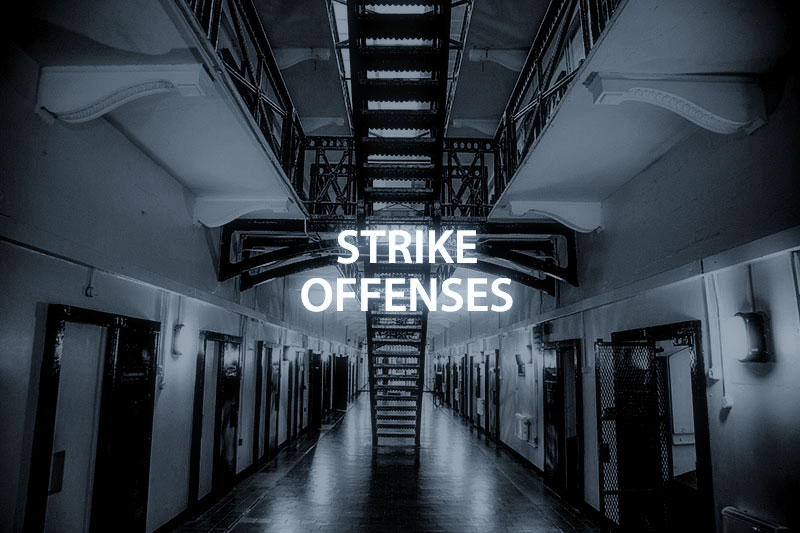Exploring the Tough-on-Crime Initiative and Its Impact on Repeat Offenders
In the early 1990s, California witnessed a significant shift in its criminal justice system with the introduction of the Three Strikes Law, a part of the “tough-on-crime” legislative package designed to reduce crime by imposing harsher sentences on repeat offenders. This initiative has long-standing implications for defendants with previous convictions and understanding the law’s complexities, its consequences, and the avenues for legal recourse is essential for anyone navigating the California legal system.
Breaking Down the Three Strikes Law
California’s Three Strikes Law was enacted in 1994 with the primary goal of significantly increasing the prison sentences of those convicted of serious or violent felonies who had prior similar convictions. Here’s how it works:
- First Strike: An individual convicted of a felony in California for the first time receives a sentence as prescribed by law for that offense.
- Second Strike: If that individual is later convicted of a second serious or violent felony, they face a doubled sentence for the new conviction.
- Third Strike: Upon a third conviction for a serious or violent felony, the defendant faces a minimum of 25 years to life in prison.
While this law was intended to deter repeat offenses and incapacitate career criminals, it has been criticized for its potential to yield disproportionate sentences for lesser crimes and for contributing to overcrowding in prisons.
The Impact on Individuals
For individuals with prior strikes on their records, the Three Strikes Law represents a looming threat of severe punishment that can follow them throughout their lives. Due to the law’s stringent penalties, a third felony – sometimes even when it’s less serious – can lead to a life sentence. This has sparked debates regarding fairness, especially in cases where the third felony conviction may not be deemed severe enough to justify such a harsh penalty.
Legal Recourse: The Romero Motion
Recognizing the potential for injustice, California’s Supreme Court provided a legal recourse through the Romero motion, named after the decision in People v. Romero (1996). The Romero motion allows a judge to dismiss or “strike” past strike convictions for sentencing purposes if it is in the interest of justice.
To grant a Romero motion, the court considers factors such as:
- The nature of the current and past offenses
- The defendant’s other criminal history
- The time elapsed between offenses
- The defendant’s rehabilitation efforts
If a judge agrees that a strict application of the Three Strikes Law would be unjust, excessive, or not in the public interest, then a Romero motion can effectively remove a past strike, which may lead to a substantially reduced sentence.
Contact Defense Attorney Caryn Warren for Help!
California’s Three Strikes Law reflects a period of “tough-on-crime” policy that has led to extremely punitive consequences for repeat offenders. While the law’s intent is to prevent recidivism and protect the public from violent criminals, it can also engender disproportionately harsh penalties for individuals whose criminal behavior does not reflect the severity anticipated by the law’s drafters.
The availability of legal recourse through a Romero motion offers a means of redress for those who may unfairly suffer under this law. It underscores the importance of judicial discretion and individualized consideration in the sentencing process. Defendants facing a third strike and those with prior strikes must understand the gravity of their situation and seek experienced legal representation that can effectively navigate the complexities of the Three Strikes Law and argue convincingly for relief when it is warranted.
Understanding and addressing the law’s potential for excessive punishment is a crucial aspect of ensuring justice within California’s legal system, a challenge that continues to evolve as society reassesses the balance between public safety and rehabilitation.
Personal Injury & Criminal Defense Services Available Throughout
Greater Sacramento, Yolo, Placer, and Solano Counties
Antelope, Arden-Arcade, Auburn, Benicia, Carmichael, Citrus Heights, Davis, Dixon, Elk Grove, Fairfield, Fair Oaks, Folsom, Galt, Gold River, Granite Bay, Iselton, Lincoln, Loomis, North Highlands, Orangevale, Rancho Cordova, Rio Linda, Rio Vista, Roseville, Rocklin, Sacramento, Suisun City, Vacaville, Vallejo, West Sacramento, Winters, Woodland

